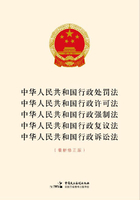By 1810, however, commerce and the fisheries had produced considerable fluid capital in New England which was seeking profitable employment, especially as the Napoleonic Wars interfered with American shipping; and since Whitney's gins in the South were now piling up mountains of raw cotton, and Slater's machines in New England were ****** this cotton into yarn, it was inevitable that the next step should be the power loom, to convert the yarn into cloth.So Francis Cabot Lowell, scion of the New England family of that name, an importing merchant of Boston, conceived the idea of establishing weaving mills in Massachusetts.On a visit to Great Britain in 1811, Lowell met at Edinburgh Nathan Appleton, a fellow merchant of Boston, to whom he disclosed his plans and announced his intention of going to Manchester to gain all possible information concerning the new industry.Two years afterwards, according to Appleton's account, Lowell and his brother-in-law, Patrick T.
Jackson, conferred with Appleton at the Stock Exchange in Boston.
They had decided, they said, to set up a cotton factory at Waltham and invited Appleton to join them in the adventure, to which he readily consented.Lowell had not been able to obtain either drawings or model in Great Britain, but he had nevertheless designed a loom and had completed a model which seemed to work.
The partners took in with them Paul Moody of Amesbury, an expert machinist, and by the autumn of 1814 looms were built and set up at Waltham.Carding, drawing, and roving machines were also built and installed in the mill, these machines gaining greatly, at Moody's expert hands, over their American rivals.This was the first mill in the United States, and one of the first in the world, to combine under one roof all the operations necessary to convert raw fiber into cloth, and it proved a success.Lowell, says his partner Appleton, "is entitled to the credit for having introduced the new system in the cotton manufacture." Jackson and Moody "were men of unsurpassed talent," but Lowell "was the informing soul, which gave direction and form to the whole proceeding."The new enterprise was needed, for the War of 1812 had cut off imports.The beginnings of the protective principle in the United States tariff are now to be observed.When the peace came and Great Britain began to dump goods in the United States, Congress, in 1816, laid a minimum duty of six and a quarter cents a yard on imported cottons; the rate was raised in 1824 and again in 1828.
It is said that Lowell was influential in winning the support of John C.Calhoun for the impost of 1816.
Lowell died in 1817, at the early age of forty-two, but his work did not die with him.The mills he had founded at Waltham grew exceedingly prosperous under the management of Jackson; and it was not long before Jackson and his partners Appleton and Moody were seeking wider opportunities.By 1820 they were looking for a suitable site on which to build new mills, and their attention was directed to the Pawtucket Falls, on the Merrimac River.The land about this great water power was owned by the Pawtucket Canal Company, whose canal, built to improve the navigation of the Merrimac, was not paying satisfactory profits.The partners proceeded to acquire the stock of this company and with it the land necessary for their purpose, and in December, 1821, they executed Articles of Association for the Merrimac Manufacturing Company, admitting some additional partners, among them Kirk Boott who was to act as resident agent and manager of the new enterprise, since Jackson could not leave his duties at Waltham.
The story of the enterprise thus begun forms one of the brightest pages in the industrial history of America; for these partners had the wisdom and foresight to make provision at the outset for the comfort and well-being of their operatives.Their mill hands were to be chiefly girls drawn from the rural population of New England, strong and intelligent young women, of whom there were at that time great numbers seeking employment, since household manufactures had come to be largely superseded by factory goods.
And one of the first questions which the partners considered was whether the change from farm to factory life would effect for the worse the character of these girls.This, says Appleton, "was a matter of deep interest.The operatives in the manufacturing cities of Europe were notoriously of the lowest character for intelligence and morals.The question therefore arose, and was deeply considered, whether this degradation was the result of the peculiar occupation or of other and distinct causes.We could not perceive why this peculiar description of labor should vary in its effects upon character from all other occupations." And so we find the partners voting money, not only for factory buildings and machinery, but for comfortable boardinghouses for the girls, and planning that these boardinghouses should have "the most efficient guards," that they should be in "charge of respectable women, with every provision for religious worship." They voted nine thousand dollars for a church building and further sums later for a library and a hospital.
The wheels of the first mill were started in September, 1823.
Next year the partners petitioned the Legislature to have their part of the township set off to form a new town.One year later still they erected three new mills; and in another year (1826)the town of Lowell was incorporated.
The year 1829 found the Lowell mills in straits for lack of capital, from which, however, they were promptly relieved by two great merchants of Boston, Amos and Abbott Lawrence, who now became partners in the business and who afterwards founded the city named for them farther down on the Merrimac River.















